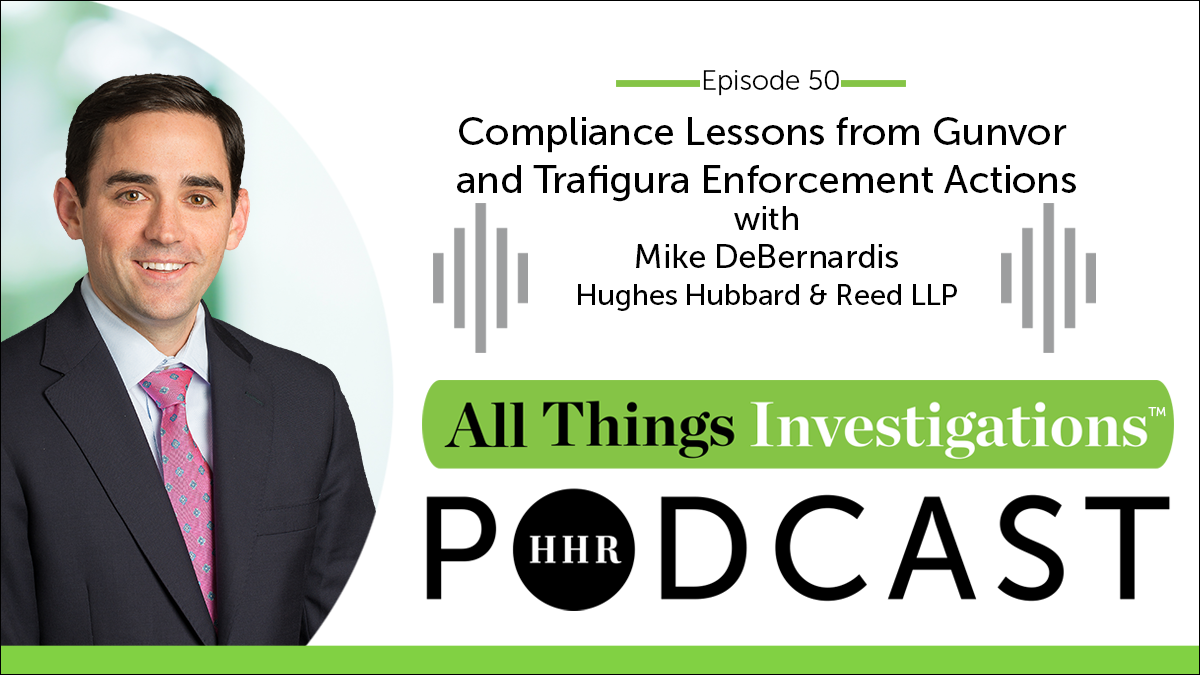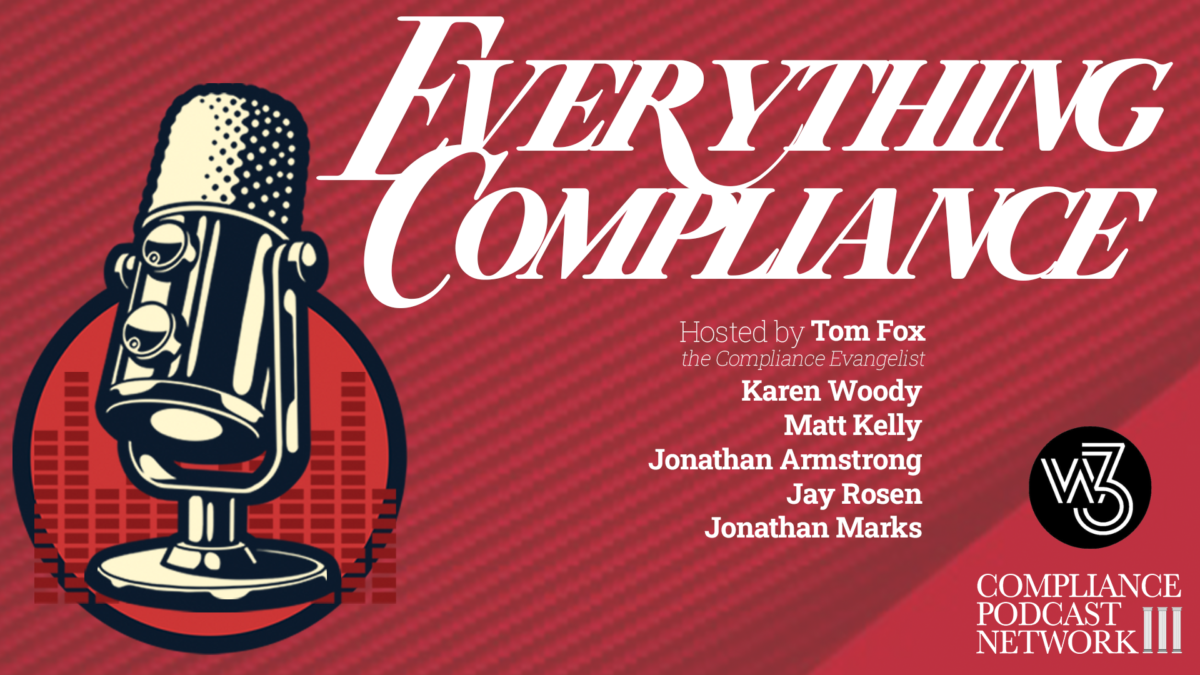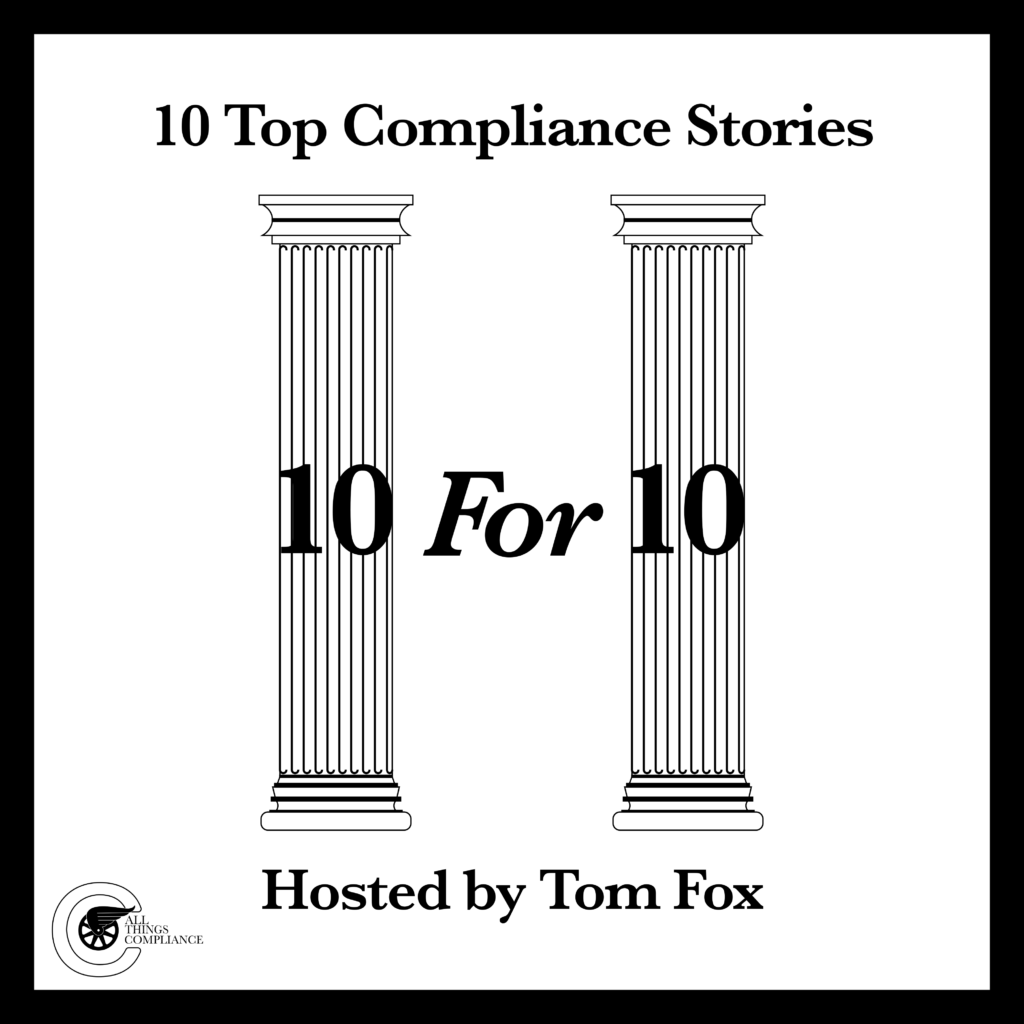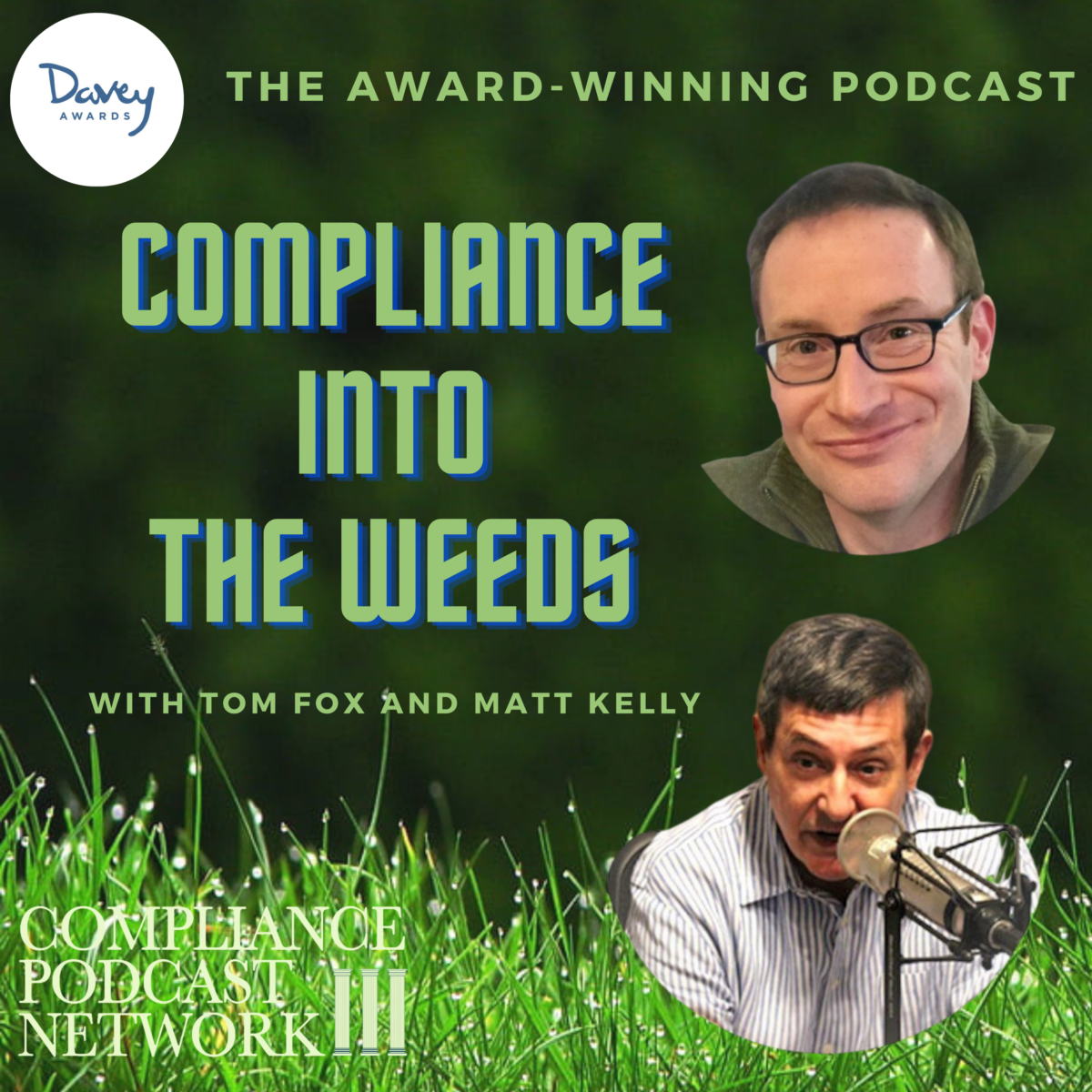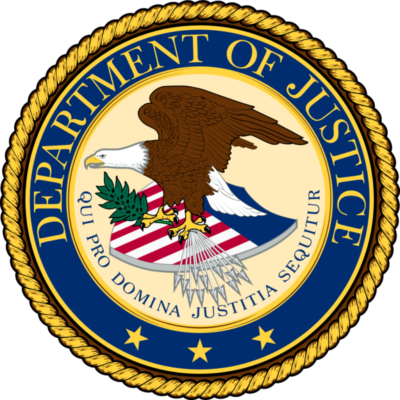We conclude our exploration of the resolution of the FCPA enforcement action involving the Swiss trading firm G Trafigura Beheer B.V. (Trafigura), an international commodity trading company with its primary operations in Switzerland. The company pleaded guilty and will pay over $126 million to resolve an investigation stemming from the company’s corrupt scheme to pay bribes to Brazilian government officials to secure business with Brazil’s state-owned and state-controlled oil company, Petróleo Brasileiro S.A. – Petrobras (Petrobras). The matter was resolved via a Plea Agreement. Information detailing the company’s conduct was also issued.
Despite substantial violations of the FCPA and its extension into the corporate offices, Trafigura received the 10% discount noted above. The message from this enforcement action is the cost of failing to self-disclose, creating liability under the FCPA and creating jurisdiction for the DOJ to bring an enforcement action, denial that you have done anything wrong, failure to cooperate (at least initially), and not sanctioning any of the culpable company actors. In other words, there is a bit of reverse logic and analysis in this case. However, as noted several times, the DOJ rewarded Trafigura with some credit and gave them a discount. Most importantly, and perhaps inexorably, Trafigura was not required to retain a monitor.
Remediation
While most of the remediation is reported as standard, the one item that every compliance professional should consider is that the company proactively discontinued using third-party agents for business origination. This point is perhaps the most significant, as we have now seen the DOJ call out Albemarle and SAP for discontinuing their use of third-party agents.
As Matt Kelly noted in Radical Compliance, in his discussion of Guvnor FCPA enforcement action, “This is the latest in a string of FCPA enforcement cases where we’ve seen a big, structural change to the sale function. Albemarle eliminated its use of third-party sales agents as part of its FCPA settlement last year; SAP eliminated its third-party sales commission model globally as part of its own FCPA settlement announced in January. Now we have a third global enterprise going that same route, reducing its FCPA risk in a deep, permanent way by restructuring its sales operations.” With Trafigura, we now have a fourth.”
As I noted in my review of the Albemarle and SAP enforcement actions, SAP eliminated its third-party sales commission model globally, prohibited all sales commissions for public sector contracts in high-risk markets, and enhanced compliance monitoring and audit programs, including the creation of a well-resourced team devoted to audits of third-party partners and suppliers. Albemarle changed its approach to sales and its sales teams. Guvnor also moved from being a third-party agent to a direct sales force.
Moving to a direct sales force does have its risks, which must be managed, but those risks can certainly be managed with an appropriate risk management strategy, monitoring of the strategy, and improvement; those risks can be managed. Yet there is another reason, and more importantly, a significant business reason, to move towards a direct sales business model. Whenever you have a third-party agent or anyone else between you and your customer, you risk losing that customer because your organization does not have a direct relationship with the customer. A direct sales business model will give your organization more direct access to your customers.
Another exciting aspect of this approach used by Albemarle, SAP, and Trafigura is that it is not an approach laid out in either the 2020 FCPA Resource Guide, 2nd edition, or the 2023 Evaluation of Corporate Compliance Programs. The companies developed all of these strategies based on their own analysis and risk models. It may have come from a realization that the risk involved with 3rd party sales models was too great, that the companies wanted more control over their sales, or another reason. Whatever the reason for the change, the DOJ clearly noted each organization and viewed it affirmatively.
Bribery Schemes
This area is essential for all compliance professionals to take note of. The bribes were initially funded with a $ 0.20 surcharge or uplift for every barrel of oil traded. With the price of oil fluctuating wildly at the time in question, between $60 to $100 per barrel, I am not sure such a small amount would even seem anomalous. It would not rise to a rounding error but generate $19 million in bribes. While I am not sure that the bribery scheme was designed to be so hard to detect, the reality is that no compliance professional could look at the trades and determine if a bribe was baked into the pricing.
Yet there was even a deeper part of the bribery scheme. Executives at Trafigura and corrupt traders at Petrobras prearranged the oil trading prices rather than letting the market determine them. The information noted, “The Trafigura Executive 2 and Brazilian Official 1 agreed to prices for trades of oil products and bribe amounts for each trade. After determining the price, Trafigura Executive 2 instructed Trafigura traders to negotiate with Petrobras, which Trafigura Executive 2 knew to be a sham, to arrive at the pre-agreed price.” [emphasis supplied]
Finally, another set of bribes was funded through an unrelated business unit. This occurred when one of the two corrupt Trafigura executives involved in the bribery scheme was transferred to run the company’s Singapore business unit. From there, this corrupt executive had a corrupt third party in Hong Kong bill the Singapore business unit for non-existent consulting services related to the Chinese market for $500,000. This money funded additional bribes to corrupt Petrobras employees. This extra step would require someone in compliance to connect the dots between a corrupt third-party bribery scheme in Singapore and China and the corruption at Petrobras in Brazil.
Lack of a Monitor
The following DOJ Memo governs the decision of whether a company needs a monitor: Revised Memorandum on Selection of Monitors in Criminal Division Matters, released in March 2023. The memo has 10 factors a prosecutor must consider.
- Did the corporation voluntarily self-disclose?
- At the time of the resolution and after a thorough risk assessment, has the company implemented an effective compliance program and sufficient internal controls to detect and prevent similar misconduct in the future?
- At the time of the resolution, the company had adequately tested its compliance program and internal controls to demonstrate that they would likely detect and prevent similar misconduct.
- Whether the underlying criminal conduct was long-lasting or pervasive across the business organization or was approved, facilitated, or ignored by senior management, executives, or directors (including through a corporate culture that tolerated risky behavior or misconduct or did not encourage open discussion and reporting of possible risks and concerns),.
- Whether the underlying criminal conduct involved exploiting an inadequate compliance program or system of internal controls.
- Did the conduct involve the active participation of compliance personnel?
- Did the company take adequate investigative or remedial measures to address the underlying criminal conduct, including terminating business relationships and practices that contributed to it?
- At the time of the resolution, the company’s risk profile had substantially changed.
- Whether the corporation faces any unique risks or compliance challenges.
- Is the company subject to other oversight?
A review of the Information and Plea Agreement reveals no self-disclosure. Equally significantly, there is no information about whether the company has implemented an effective compliance program or sufficient controls, let alone tested them. According to the data, the conduct was long-lasting across multiple business units. If there were internal controls in place, they were undoubtedly inadequate. There does not appear to be involvement in the compliance function. The only positive factor from the resolution documents is that Trafigura did terminate its use of third parties to initiate and foster business development, but that appears to be the only factor they have met.
Writing again in Radical Compliance, Matt Kelly said, “Either way, these cases send mixed messages to the compliance community. It looks like you can get away with not self-disclosing misconduct and perhaps even slow-rolling your cooperation if you’re prepared to invest lots in a newly invigorated compliance program and tolerate the Fraud Section as your new BFFs for the next three years of a settlement agreement.”
If the DOJ has discontinued its monitoring program or changed the requirements, it is undoubtedly its prerogative to do so. It would be helpful if they communicated that change to the compliance community.



